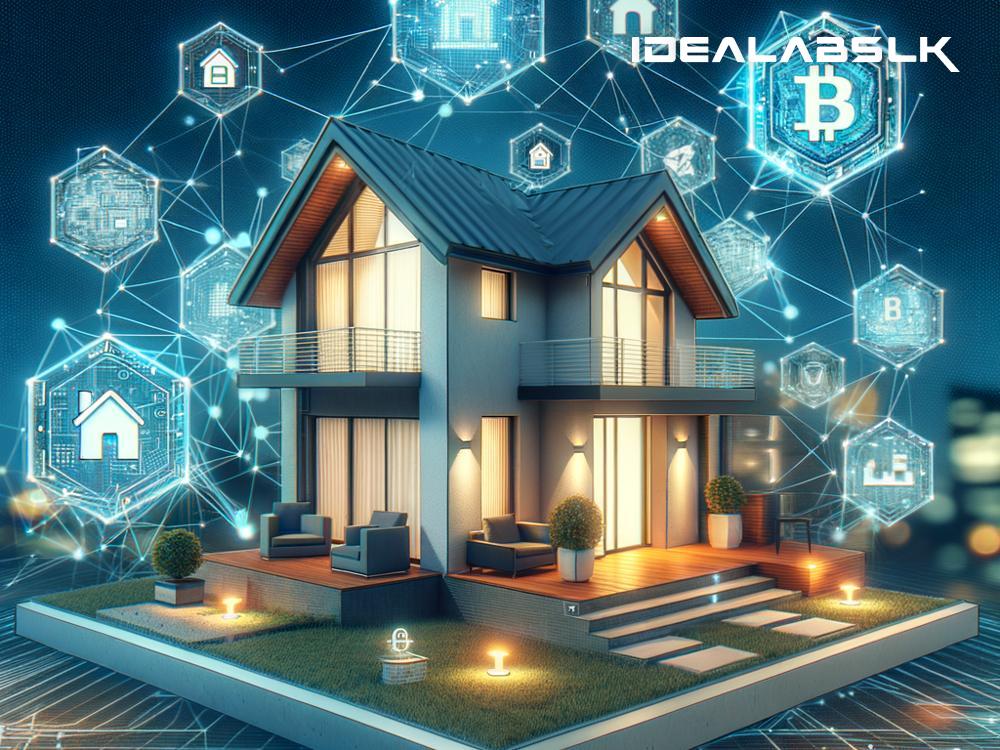Blockchain for Real Estate: Making Homeownership a Global Opportunity through Tokenization
Have you ever dreamed of owning a little piece of a beautiful apartment in Paris, a cozy beachfront home in Bali, or a sleek condo in New York? Traditionally, investing in real estate, especially in international markets, required a ton of money, lots of patience for the bureaucratic process, and sometimes, a magic wand! But what if there was a way to break down these barriers, making property investment accessible to more people around the world? Enter blockchain technology and the concept of tokenizing residential properties.
So, What Is Blockchain?
Imagine a ledger or a record book that's not held by one person or institution but is instead shared across thousands of computers around the world. This ledger records transactions in a secure, transparent, and unchangeable way. That's the essence of blockchain technology. Originally developed for the digital currency Bitcoin, blockchain has far-reaching applications beyond just finance.
And Then, There's Tokenization
Tokenization is about converting ownership of a real asset into a digital token on the blockchain. Think of a token as a small, digital piece of ownership that you can buy, sell, and trade. In the context of real estate, tokenization means breaking down property value into manageable digital shares that can be owned by multiple investors.
Combining Blockchain and Real Estate
Combining blockchain with real estate democratizes access to property investments. It allows for what's called fractional ownership, meaning instead of buying an entire property, multiple investors can own shares or "tokens" of it. This opens up real estate investment to those who may not have the hefty sums traditionally required, enabling a more diverse group of global investors to enter the market.
Advantages of Blockchain in Real Estate
-
Global Access: Investors from around the world can invest in properties without the geographical restrictions and heavy paperwork associated with traditional real estate transactions.
-
Fractional Ownership: A property can be divided into thousands or even millions of tokens, allowing for investment amounts that can fit anyone’s budget.
-
Liquidity: Traditionally, real estate is not a liquid investment — it takes time to sell. Tokenization can potentially offer a more liquid form of investment, as tokens can be bought and sold more freely on digital platforms.
-
Transparency and Security: Blockchain’s inherent features ensure that every transaction is recorded transparently and securely. This significantly reduces the risk of fraud.
-
Simplified Processes: Buying real estate involves a lot of intermediaries, from lawyers to real estate agents. Blockchain can streamline these transactions by cutting out many of these intermediaries, reducing costs, and speeding up the process.
Tokenizing Residential Properties for Global Investors
Let’s put this into practice. Imagine a new residential development in Tokyo. Instead of selling whole apartments, the developer decides to tokenize the property, offering digital shares to investors worldwide. Through a blockchain platform, you, sitting comfortably on your couch in Toronto, can invest $1,000 in this property. You now own a part of a Tokyo apartment, along with hundreds of other global investors. As the property appreciates in value, so does your investment. If you decide to “sell” your share, you simply trade your tokens on the platform.
Potential Challenges and the Road Ahead
While promising, tokenizing real estate is not without its challenges. Regulatory hurdles are a significant concern as governments and financial authorities around the world grapple with how to deal with this new form of investment. Additionally, the real estate market is traditionally slow to adopt new technologies, and it might take time for tokenization to become mainstream.
Moreover, ensuring that the digital tokens accurately represent the underlying assets and that the legal frameworks protect investors will be crucial in building trust in this new investment form.
Conclusion
Blockchain and tokenization are poised to revolutionize the real estate industry by making it more accessible, transparent, and streamlined. While there are challenges to overcome, the potential benefits for global investors are enormous. As technology progresses and regulatory frameworks evolve, we might soon see a world where anyone can invest in property markets around the globe, all from the comfort of their own home. The dream of global homeownership could, in a very real sense, become a reality for many.

